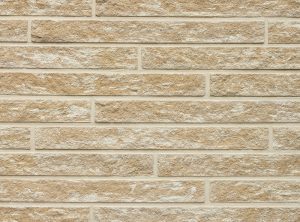Understanding Manufactured Stone Veneer
Manufactured stone veneer (MSV) is a popular building material designed to replicate the appearance of natural stone while offering increased versatility and accessibility. Understanding the benefits and limitations of MSV is an essential step in making an informed decision for any project.
Manufactured stone veneer, often referred to as cultured stone or architectural stone, is created by mixing concrete with additives and forming it in textured molds that mimic natural stone. This process allows manufacturers to create a wide variety of stone veneer styles that reflect regional aesthetics and contemporary design trends. Unlike natural stone, which comes in full blocks or veneer-style covers, MSV is significantly lighter, making it easier to handle and install. The primary difference between the two materials is weight, with natural stone being much heavier and requiring more structural support.
One of the biggest advantages of manufactured stone veneer is its accessibility. Unlike natural stone, which must be harvested through resource-intensive methods, MSV is produced using less invasive processes, making it a more sustainable and cost-effective option. Additionally, high-quality manufactured stone veneer comes with long-term durability, ensuring it withstands a range of temperatures and environmental conditions. This makes it suitable for various applications, both indoors and outdoors.
Manufactured stone veneer also offers remarkable design versatility. It is ideal for vertical installations in both wet and dry areas, and it can be used to create a range of aesthetics, from sleek and modern to rustic and aged. Contractors and homeowners can achieve the look of natural stone without the challenges associated with cutting and sourcing real stone.
However, MSV does have some limitations. It is not recommended for load-bearing applications, as it lacks the structural integrity of natural stone. MSV should not be used for primary structural elements but should instead be installed on walls that can support its lightweight nature. Additionally, manufactured stone veneer can be sensitive to certain chemicals. Exposure to chlorine, de-icing salts, and harsh solvents can cause discoloration or surface damage. It is important to consider environmental factors when selecting this material.
The styles available in manufactured stone veneer cater to a wide range of design preferences. The Eccentric style features bold colors and large organic shapes that create a visually striking statement for exteriors and interior walls. The Modern style is characterized by clean lines, smooth surfaces, and a cool-toned color palette, making it a favorite among contemporary designers. Thin Brick veneer provides a timeless brick aesthetic without the weight and labor-intensive installation of traditional brick. With various styles and colors available, builders can find the perfect MSV option to match their project’s unique needs.
Manufactured stone veneer is a practical and aesthetically pleasing alternative to natural stone, offering a balance of affordability, ease of installation, and design flexibility. By understanding its advantages and limitations, builders can confidently choose manufactured stone veneer to enhance both residential and commercial spaces.

